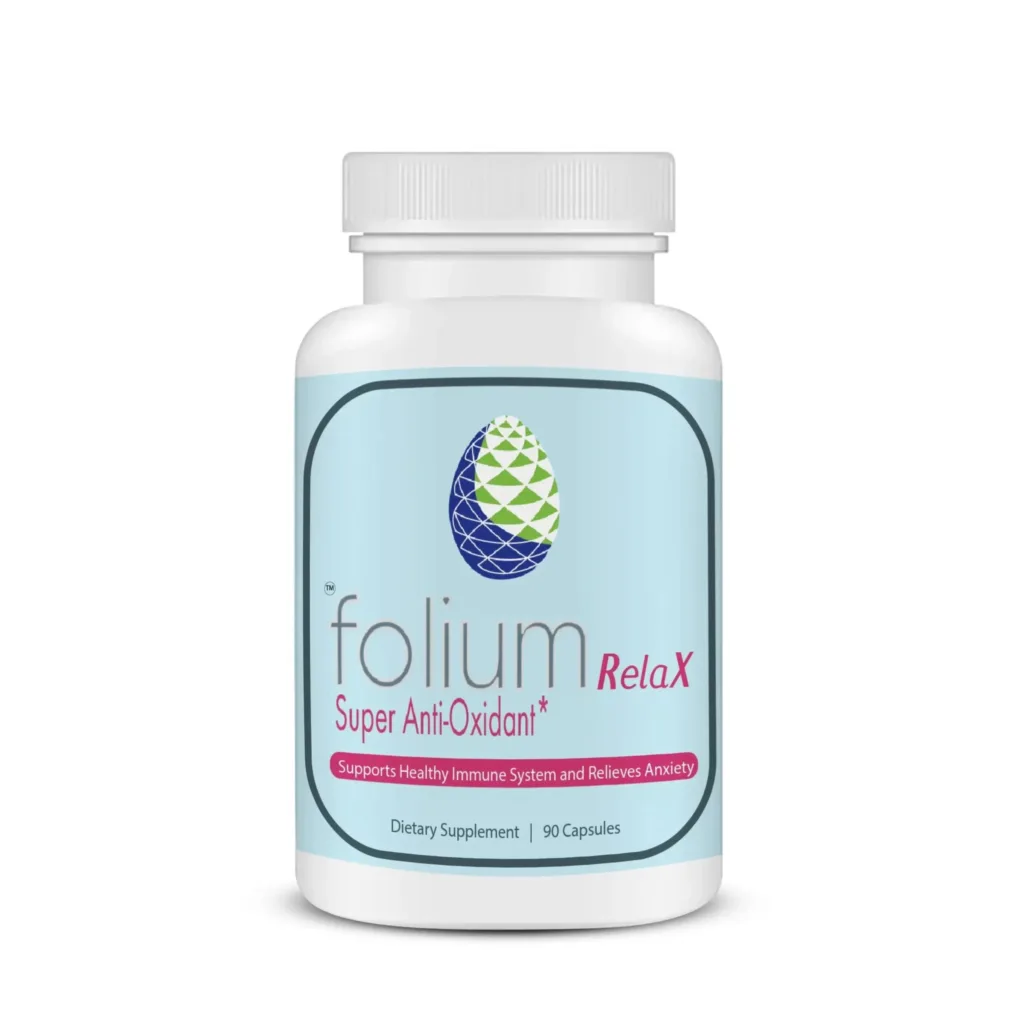Your cart is currently empty!

Free Radicals Support: Understanding the Benefits of Antioxidants
Table of Contents
Free radicals, the unstable molecules that arise from various metabolic processes and environmental factors, have gained significant attention in recent years due to their potential impact on human health. These highly reactive species can cause oxidative stress, leading to cellular damage and contributing to the development of numerous chronic diseases. As a result, understanding the role of antioxidants in neutralizing free radicals has become increasingly important.
Antioxidants, both naturally occurring in our bodies and obtained through diet and supplements, serve as a crucial defense mechanism against the harmful effects of free radicals. By exploring the sources, mechanisms, and potential benefits of antioxidants, we can gain valuable insights into their role in promoting overall health and well-being. This article aims to provide a comprehensive overview of free radicals, oxidative stress, and the importance of antioxidants in maintaining optimal health.
What are Free Radicals?
Free radicals are molecules or atoms that possess an unpaired electron in their outer shell, making them highly unstable and reactive. These unstable molecules are constantly seeking to stabilize themselves by stealing electrons from other molecules, setting off a chain reaction that can cause damage to cellular structures, proteins, lipids, and DNA. Free radicals are formed naturally within the body as a result of various metabolic processes, such as the production of energy in the mitochondria or the immune system’s response to pathogens. However, exposure to external factors, including pollution, UV radiation, cigarette smoke, and certain chemicals, can also contribute to the generation of free radicals.
When the production of free radicals exceeds the body’s ability to neutralize them, a state of oxidative stress occurs. Oxidative stress is characterized by an imbalance between free radicals and antioxidants, leading to an accumulation of cellular damage. This damage can manifest in various ways, such as the oxidation of lipids in cell membranes, the modification of proteins, and the alteration of DNA sequences. Over time, the cumulative effects of oxidative stress have been linked to the development and progression of numerous chronic diseases, including cardiovascular disease, neurodegenerative disorders, diabetes, and certain types of cancer.
While free radicals have gained a negative reputation due to their potential to cause harm, it is important to note that they also play essential roles in various physiological processes. For example, free radicals produced by immune cells help to destroy invading pathogens, and they are involved in cell signaling pathways that regulate growth, differentiation, and apoptosis. The key to maintaining optimal health lies in achieving a delicate balance between the production of free radicals and the body’s capacity to neutralize them through antioxidant defenses.
Antioxidants: Nature’s Defense Mechanism

Antioxidants are molecules that have the ability to neutralize free radicals by donating an electron, thereby stabilizing them and preventing the chain reaction of cellular damage. These protective compounds can be classified into two main categories: endogenous antioxidants, which are produced naturally within the body, and exogenous antioxidants, which are obtained through diet or supplements.
Endogenous antioxidants include enzymes such as superoxide dismutase, catalase, and glutathione peroxidase, as well as non-enzymatic molecules like glutathione, uric acid, and coenzyme Q10. These antioxidants work synergistically to scavenge free radicals and repair oxidative damage within cells. The body’s ability to produce endogenous antioxidants can be influenced by various factors, including age, genetics, and lifestyle habits.
Exogenous antioxidants, on the other hand, are primarily obtained through the consumption of a varied and balanced diet rich in fruits, vegetables, whole grains, and other plant-based foods. Some of the most well-known dietary antioxidants include vitamins C and E, beta-carotene, lycopene, and polyphenols such as flavonoids and phenolic acids. These compounds work in concert with endogenous antioxidants to provide comprehensive protection against oxidative stress.
The mechanism of action of antioxidants involves several strategies. Some antioxidants, such as vitamin C, directly scavenge free radicals by donating an electron and becoming oxidized themselves. Others, like vitamin E, act as chain-breaking antioxidants, interrupting the propagation of lipid peroxidation in cell membranes. Antioxidant enzymes, such as superoxide dismutase, catalyze the conversion of harmful free radicals into less reactive species, while glutathione, a master antioxidant, plays a crucial role in recycling other antioxidants and maintaining cellular redox balance.
Maintaining a balance between free radicals and antioxidants is essential for optimal health. When antioxidant defenses are overwhelmed by excessive free radical production, oxidative stress ensues, leading to cellular damage and an increased risk of chronic diseases. Conversely, an adequate supply of antioxidants helps to keep free radicals in check, promoting cellular integrity and overall well-being. Therefore, incorporating a variety of antioxidant-rich foods into the diet and considering targeted antioxidant supplementation when necessary can be an important strategy for supporting the body’s natural defense mechanisms against oxidative stress.
Dietary Sources of Antioxidants

A diet rich in antioxidants is one of the most effective ways to support the body’s natural defense mechanisms against oxidative stress. Fruits and vegetables are among the best dietary sources of antioxidants, offering a wide array of protective compounds that work synergistically to neutralize free radicals and promote optimal health.
Berries, such as blueberries, raspberries, and strawberries, are particularly high in antioxidants, including anthocyanins and ellagic acid. These compounds have been shown to possess potent anti-inflammatory and neuroprotective properties, making them valuable allies in the fight against oxidative stress-related conditions. Citrus fruits, like oranges, grapefruits, and lemons, are excellent sources of vitamin C, a powerful water-soluble antioxidant that helps to regenerate other antioxidants in the body.
Leafy green vegetables, such as spinach, kale, and Swiss chard, are rich in antioxidants like lutein, zeaxanthin, and beta-carotene. These compounds play a crucial role in maintaining eye health and reducing the risk of age-related macular degeneration. Other antioxidant-rich vegetables include tomatoes, which contain lycopene, a potent free radical scavenger, and cruciferous vegetables like broccoli and cauliflower, which are high in sulforaphane, a compound that activates the body’s natural antioxidant defenses.
Herbs and spices are often overlooked as sources of antioxidants, but they can provide a significant boost to the body’s defenses against oxidative stress. Turmeric, a spice commonly used in Indian and Middle Eastern cuisine, contains curcumin, a polyphenol with powerful anti-inflammatory and antioxidant properties. Ginger, another popular spice, is rich in gingerols and shogaols, compounds that have been shown to reduce oxidative stress and inflammation in the body. Other antioxidant-rich herbs and spices include cinnamon, cloves, oregano, and rosemary.
In addition to fruits, vegetables, herbs, and spices, other food sources of antioxidants include nuts, seeds, and whole grains. Almonds, walnuts, and pecans are rich in vitamin E, a fat-soluble antioxidant that helps to protect cell membranes from oxidative damage. Flaxseeds and chia seeds are excellent sources of lignans, polyphenols that have been shown to reduce inflammation and oxidative stress in the body. Whole grains, such as oats, quinoa, and brown rice, contain a variety of antioxidants, including ferulic acid and phytic acid, which help to neutralize free radicals and promote overall health.
Incorporating a wide variety of antioxidant-rich foods into the diet is essential for optimal health. By consuming a colorful array of fruits, vegetables, herbs, spices, nuts, seeds, and whole grains, individuals can ensure that they are obtaining a diverse range of protective compounds that work together to support the body’s natural antioxidant defenses and promote overall well-being.
Antioxidant Supplements: Benefits and Considerations

While a diet rich in antioxidant-dense foods is the foundation of a healthy lifestyle, some individuals may benefit from the use of natural antioxidant supplements as a complementary approach to support their body’s defenses against oxidative stress. Folium has developed several proprietary formulations designed to promote overall health and well-being.
Folium pX is a unique blend of pine bark extract, grape seed extract, and other plant-based antioxidants. Pine bark extract, derived from the French maritime pine tree, is a rich source of proanthocyanidins, potent antioxidants that have been shown to support cardiovascular health, improve cognitive function, and reduce inflammation in the body. Grape seed extract, another key ingredient in Folium pX, contains a high concentration of oligomeric proanthocyanidins (OPCs), which are known for their exceptional free radical scavenging abilities and their potential to promote skin health and reduce the signs of aging.
Another product in the Folium line is Folium Relax, a natural formulation designed to support mood and reduce feelings of anxiety and depression. This supplement contains a blend of herbs and plant extracts, such as ashwagandha, chamomile, and lemon balm, which have been traditionally used to promote relaxation and emotional well-being. By reducing the impact of stress on the body, Folium Relax may help to minimize the production of stress-related free radicals and support overall antioxidant defenses.
Folium Immuno is a third offering from the company, which combines pine parts, grape seed extracts, and other ingredients aimed at enhancing immune function and reducing inflammation. This supplement contains a blend of antioxidant-rich compounds, such as ginger, turmeric, green tea, and pomegranate, which work synergistically to support the body’s natural immune response and protect against oxidative stress.
The potential benefits of Folium’s antioxidant supplements lie in their ability to support the body’s natural defenses against oxidative stress, promote overall well-being and vitality, and complement a healthy lifestyle for optimal health. However, it is important to note that while these supplements may offer potential benefits, they should not be considered a replacement for a balanced diet and regular physical activity.
When considering the use of antioxidant supplements, it is crucial to choose high-quality products from reputable companies. Folium prides itself on using carefully selected, natural ingredients and having their products formulated by experienced herbal scientists. Antioxidant supplements should be used as part of a comprehensive approach to health, including a balanced diet, regular exercise, and stress management techniques, to optimize their potential benefits and minimize any risks.
Antioxidants and Specific Health Conditions

The protective effects of antioxidants have been studied in relation to various health conditions, with research suggesting that these compounds may play a role in reducing the risk and managing the progression of several chronic diseases.
Cardiovascular health is one area where antioxidants have shown promise. Oxidative stress is a significant contributor to the development of heart disease, as free radicals can damage blood vessels, promote inflammation, and contribute to the buildup of plaque in the arteries. Antioxidants, such as vitamin C, vitamin E, and polyphenols, have been shown to help reduce oxidative stress in the cardiovascular system, thereby supporting heart health. Studies have found that a diet rich in antioxidant-dense fruits and vegetables is associated with a lower risk of heart disease, while certain antioxidant supplements, such as coenzyme Q10, have been shown to improve cardiovascular function.
Cognitive function and brain health are another area of interest when it comes to antioxidants. The brain is particularly susceptible to oxidative stress due to its high oxygen consumption and high content of polyunsaturated fatty acids, which are prone to lipid peroxidation. Antioxidants, such as flavonoids, vitamin E, and omega-3 fatty acids, have been studied for their potential to protect brain cells from oxidative damage and reduce the risk of neurodegenerative diseases like Alzheimer’s and Parkinson’s. Some research suggests that a diet rich in antioxidants may help to improve cognitive function and slow the age-related decline in brain health.
Skin health is another area where antioxidants have gained attention. Exposure to UV radiation, pollution, and other environmental stressors can lead to the production of free radicals in the skin, contributing to premature aging, wrinkles, and other signs of damage. Antioxidants, such as vitamin C, vitamin E, and carotenoids, have been shown to help protect the skin from oxidative stress, reduce inflammation, and promote collagen production. Topical application of antioxidant-rich skincare products and consuming a diet high in antioxidants may help to support skin health and maintain a youthful appearance.
In addition to these specific health conditions, antioxidants have been studied for their potential benefits in managing other chronic diseases, such as diabetes and inflammatory disorders. For example, some research suggests that antioxidants may help to improve insulin sensitivity and reduce oxidative stress in individuals with diabetes, while others have found that certain antioxidants, such as curcumin and resveratrol, may help to reduce inflammation in the body and alleviate symptoms of conditions like rheumatoid arthritis and inflammatory bowel disease.
Lifestyle Factors and Antioxidant Status

In addition to dietary intake and supplementation, various lifestyle factors can influence an individual’s antioxidant status and overall health. Regular exercise, for example, has been shown to enhance the body’s antioxidant defenses. During physical activity, the body experiences a temporary increase in free radical production; however, this increase stimulates the upregulation of endogenous antioxidant enzymes, leading to improved antioxidant capacity over time. Engaging in regular moderate-intensity exercise can help to reduce oxidative stress and support overall health.
Stress management is another crucial aspect of maintaining optimal antioxidant status. Chronic stress has been linked to increased oxidative stress in the body, as stress hormones like cortisol can promote inflammation and the production of free radicals. Engaging in stress-reducing activities, such as meditation, yoga, or deep breathing exercises, can help to minimize the impact of stress on the body and support antioxidant defenses.
On the other hand, certain lifestyle habits can negatively impact antioxidant status. Smoking and excessive alcohol consumption, for example, are significant sources of free radicals in the body and can deplete antioxidant reserves. Quitting smoking and moderating alcohol intake can help to reduce oxidative stress and support overall health.
Adopting a holistic approach to health, which encompasses a balanced diet, regular exercise, stress management, and the avoidance of harmful habits, is essential for optimizing antioxidant status and promoting overall well-being. By making positive lifestyle choices, individuals can support their body’s natural defenses against oxidative stress and reduce the risk of chronic diseases associated with free radical damage.
Conclusion: Understanding the Benefits of Antioxidants
Understanding the role of free radicals and the importance of antioxidants in promoting overall health and well-being is crucial in today’s world. As we have explored throughout this article, free radicals are unstable molecules that can cause cellular damage and contribute to the development of various chronic diseases when left unchecked. Antioxidants, both endogenous and exogenous, serve as the body’s natural defense mechanism against these harmful compounds, neutralizing free radicals and protecting cells from oxidative stress.
A diet rich in antioxidant-dense foods, such as fruits, vegetables, herbs, spices, nuts, seeds, and whole grains, is the foundation of a healthy lifestyle and an effective way to support the body’s antioxidant defenses. By consuming a wide variety of colorful plant-based foods, individuals can ensure that they are obtaining a diverse range of protective compounds that work synergistically to promote optimal health. The potential benefits of antioxidants extend to various aspects of health, including cardiovascular function, cognitive performance, skin health, and the management of chronic diseases such as diabetes and inflammatory disorders.
Ultimately, adopting a comprehensive approach to health, which includes a balanced diet, regular exercise, stress management, and the avoidance of harmful habits, is the key to optimizing antioxidant status and promoting overall well-being. By making informed choices and prioritizing a healthy lifestyle, individuals can harness the power of antioxidants to support their body’s natural defenses against oxidative stress.
Discover the power of antioxidants with Folium’s unique supplements, designed to enhance your health and well-being naturally.
Further Reading
For those interested in expanding their knowledge about antioxidants and their health benefits, here are a few resources that offer in-depth information:
- Better Health Channel: This site provides an extensive overview of antioxidants, detailing their benefits, the bodily processes they support, and the foods that are rich in these vital substances. Read more about antioxidants on Better Health Channel.
- Medical News Today: Offers a comprehensive look at antioxidants, discussing their health benefits, different types available through diet, and the impact of supplements. Explore detailed antioxidant information on Medical News Today.
- Harvard T.H. Chan School of Public Health: Provides insights into the research behind antioxidants and their effects on disease prevention, helping readers understand the science behind the health claims. Learn about the science of antioxidants at Harvard.
Leave a Reply